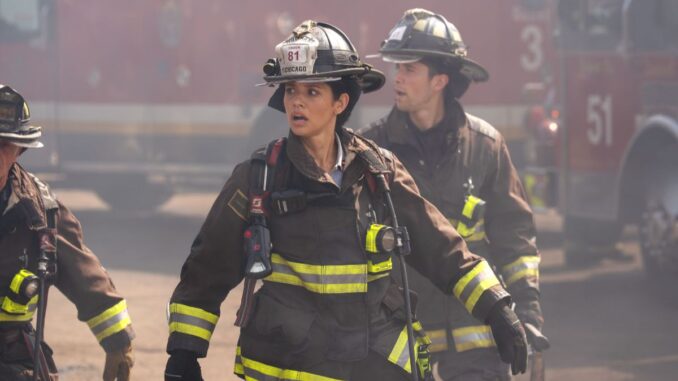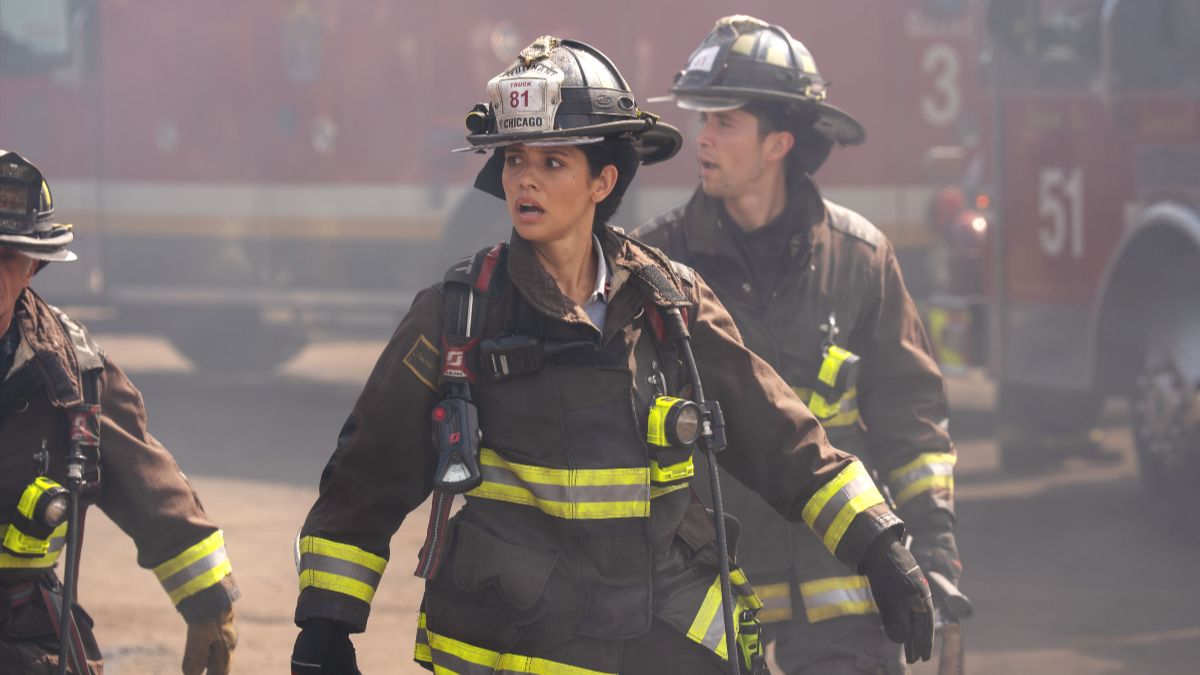
The Steel Beneath the Spark: When Stella Kidd Became the Firehouse’s Voight
Chicago Fire season 14, episode 2. The very thought sends a shiver down the spine, not just for the unknown infernos, but for the profound character shifts it might herald. The prompt – “turns Stella Kidd into Hank Voight” – is a seismic declaration, suggesting not just a character arc, but a complete moral inversion, a descent into the morally ambiguous, yet brutally effective, world of a man who lives by his own code. To imagine Stella Kidd, the bright spark, the empathetic leader, the very heart of Girls on Fire, becoming the firehouse’s equivalent of Intelligence’s steely, rule-bending sergeant, is to envision a tragedy, a hardening, and perhaps, a new, terrifying form of heroism born from the ashes of disillusionment.
Stella Kidd, as we know her, is a beacon of light. Her compassion is as boundless as her courage. She believes in the system, in procedure, in lifting others up and fighting for justice within the confines of the law and department regulations. She’s the one who sees the good in people, who mentors, who leads with a smile and an unwavering moral compass. Hank Voight, on the other hand, is a force of nature carved from granite, a man whose moral compass spins wildly in the grey areas, pointing always to the “right” outcome, regardless of the path taken. He operates on the principle that some evils require an even greater, unorthodoxy to combat, that the rules are often a hindrance to true justice. For Stella to bridge this chasm, a chasm of ethics, methodology, and worldview, would require a catastrophic event, one that shatters her faith in everything she holds dear.
Episode 2 of Season 14, therefore, must not merely present a challenge, but an existential crisis for Stella. Imagine a scenario where a horrific fire – not an accident, but an act of deliberate malice – claims lives that could have been saved, or worse, targets a vulnerable community Stella has painstakingly built up, perhaps even a member of Girls on Fire. The perpetrator, through some loophole, some corrupt system, or a sheer lack of evidence, walks free. The system fails. Justice, in the conventional sense, is denied. Stella, who has always trusted that if you do things by the book, if you fight hard enough, the truth will prevail, finds herself staring into an abyss of impotent rage.
This is where the Voight-ification begins. The initial spark of frustration in Stella’s eyes would harden into a cold, calculating glare. Her first deviation might be small, almost imperceptible: a refusal to let go of a case, an off-the-books investigation. She might start asking questions not just about the fire, but about the people involved, digging into their lives, their vulnerabilities. We’d see her bypassing official channels, perhaps using her contacts, not for department intel, but for the kind of street-level information Voight thrives on. Her conversations would shift, becoming less about protocol and more about getting answers, regardless of how they’re obtained.
The pivotal moment, the true “turn,” would likely involve a confrontation. Stella, having exhausted all legitimate avenues, would find herself face-to-face with the individual she believes responsible. But instead of the usual firefighting confrontation – a rescue, a stern lecture, a call to the police – she would employ Voight’s brutal efficacy. It wouldn’t necessarily be physical violence, but a psychological one. She’d use intimidation, leverage knowledge she shouldn’t have, deliver a chilling, unshakeable threat that leaves no doubt about the consequences if their actions are repeated, or if they don’t disappear. Her words, usually a source of comfort or encouragement, would become razor-sharp instruments of fear. The steely resolve in her eyes would no longer be about courage in the face of flames, but about a terrifying, quiet promise of retribution.
This transformation wouldn’t come without a profound internal struggle. We’d see glimpses of the old Stella – a haunted look in her eyes, a moment of recoil after she’s crossed a line. But the overriding emotion would be a grim determination, born from the conviction that she is doing what must be done, because no one else will. Kelly Severide, her husband, would be the first to notice the chilling change, recognizing the shadow of a different kind of justice in her actions. Boden, her mentor, would witness a shift from a proactive rescuer to a reactive enforcer, a guardian willing to dirty her hands to protect her flock from threats the law can’t touch.
By the end of season 14, episode 2, Stella Kidd would still wear the uniform of a firefighter, but beneath it, she would carry the heavy, dark mantle of Hank Voight. She would still save lives, but with a different kind of ruthlessness. Her leadership would be unwavering, but tinged with an unspoken threat to anyone who dares to harm those she protects. The spark that once defined her would have been tempered by fire, turning into a diamond-hard, unforgiving resolve, ready to cut through any obstacle, legal or otherwise, to deliver her own brand of justice. It would be a tragic, compelling, and utterly transformative evolution, leaving viewers to ponder whether the price of such necessary evil is worth the soul of a hero.

